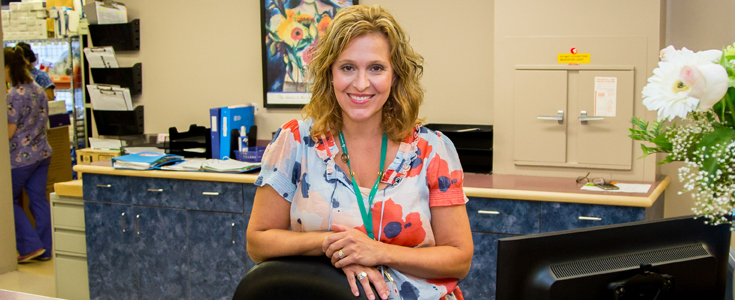
More than Morale
Of Note
Related Links
Time To Care: How to Love Your Patients and Your Job
Sharing the Secrets of Health, Healing and Caring for the Patient
Staff Engagement and Nurses
You've probably heard the term 'staff engagement' a lot over the past few years. More than a measure of workplace morale, engagement refers to employees' emotional and intellectual commitment to an organization. This is reflected in the degree to which employees know and understand their role in achieving organizational goals, believe they are making a personal contribution to those goals, and are being recognized for it. Engaged staff say positive things about their organization to those in and outside of it, they want to stay and build a career, and invest extra effort in helping the organization succeed.
Not only do more actively engaged employees generate the kind of energy and enthusiasm needed to create positive workplaces, in the healthcare sector specifically those individuals also contribute to better clinical outcomes. And there's no shortage of evidence to suggest that actively engaged employees are physically and emotionally healthier themselves, as well. So there are plenty of compelling reasons for doing all we can to increase staff engagement levels throughout the Region.
It's true that we have struggled with engagement within the WRHA; we work in challenging environments where both needs and expectations are high and timeframes are tight. It's stressful - the front lines of healthcare are not for the faint of heart. That said, if we look at our Regional statistics, nursing engagement levels are trending upwards, and have been for three straight years (2013, 2014, 2015). That's great to see. We are indeed making headway.
Again, more than a measure of morale, engagement is a measure of momentum, of the belief that both collectively and individually we make a fundamental difference to each other and to the people we serve - our patients, residents and clients. We owe it to those we serve - and to ourselves - to continually work towards higher levels of staff engagement. So what do we do?
Let's start by taking a good look at what's working across the Region. There are areas where engagement scores are consistently above average. Staff in those environments cite a connection to 'the big picture', a collegial work environment and a sense of belonging among the reasons they feel personally and professionally connected to their work. It's clear to me that: clarity - around mission, cohesiveness - of team, and a sense of community - at a site, form the foundation for an engaged workforce.
Now, who's responsible for creating that environment? All of us, of course. However, to a great extent the way we feel about our work is influenced by those we report to. It's no surprise then, that the nurse manager is viewed as integral to nurturing engaged staff.
It's a big responsibility, setting the tone so that staff can optimize their potential and consistently bring their best to work. And here again in our WRHA engagement survey data, we're seeing an upward trend in perceived manager effectiveness year over year - another very positive sign.
All of this raises a few questions: How do we build on our momentum? Are there obstacles in our way? What can I do, in my role as Chief Nursing Officer, to support your efforts? As a Region and as nurses, we need to have that conversation.
Can we gain anything by sharing what works in areas where we see higher engagement scores? I think so.
I want to hear from you. Please write to me at [email protected]. What's working on your unit or at your site? How can I support our nurse managers in advocating for and creating the kind of respectful, thoughtful and inspired teams we all want to be a part of. What's the one thing you'd change - today, if you could - to feel fulfilled by your work?
Let's have that conversation. Monika Gawthrop, our Nurse in the Spotlight, is just the right person to get us started.
Lori Lamont,
Vice President, Vice President and Chief Nursing Officer
